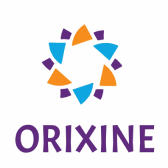
Introduction
Nigeria is no stranger to economic challenges, but recent years have seen inflation rise to concerning levels, affecting almost every aspect of daily life. Among the sectors hardest hit by inflation is healthcare, especially when it comes to the affordability and accessibility of medications. As the cost of medications soars, many Nigerians find it increasingly difficult to access the medicines they need to manage their health. This blog post explores how inflation impacts the cost of medications in Nigeria and discusses some possible interventions and policies that can help make healthcare more accessible and affordable for all.
How Inflation Affects Healthcare
Inflation influences the healthcare sector in multiple ways, from raising the cost of essential medical supplies to impacting wages and overall health services. Here’s a closer look at the main ways inflation affects healthcare in Nigeria:
- Increased Costs of Medical Supplies: Rising inflation translates to higher prices for medical supplies, equipment, and pharmaceuticals, inflating the operational costs for healthcare providers. These increased costs often trickle down to patients, making healthcare services more expensive.
- Rising Wages for Healthcare Professionals: As the cost of living climbs, healthcare professionals may seek higher wages to offset inflation’s effects. This wage increase can lead to higher operational costs within hospitals and clinics, further impacting the prices of healthcare services.
- Strained Budgets in Public Healthcare: Government-funded healthcare services may face budget constraints as inflation eats into available funds. This can reduce the quality and quantity of services provided, affecting both patients and healthcare workers.
- Challenges in Affordability and Accessibility: With healthcare costs rising, many Nigerians face difficulties affording essential medications. This situation can make it harder for those in low-income communities to access necessary healthcare, worsening health disparities across the population.
The Consequences of High Medication Costs in Nigeria.
The impact of inflation on medication prices has direct consequences for both individuals and the healthcare system as a whole. Here are some of the key challenges Nigerians face as medication prices rise:
- Financial Strain on Households: As medication costs increase, many families struggle to keep up with essential healthcare needs. This financial strain is especially burdensome for those with chronic conditions requiring ongoing medication, leading some to prioritise immediate living costs over their health.
- Impact on Treatment Adherence: High drug prices can lead to non-adherence to prescribed treatments. When patients can’t afford their medications, they may skip doses or discontinue their treatments entirely. This disrupts disease management and can result in more severe health complications down the line, increasing healthcare costs over the long term.
- Exacerbation of Health Inequities: The disparity between those who can afford medications and those who cannot contribute to growing health inequities. Low-income households bear the brunt of these high prices, with many unable to access basic treatments. This disparity hinders efforts to achieve universal healthcare access and worsens health outcomes for vulnerable populations.
Possible Interventions and Government Policies
While inflation is a complex economic challenge, there are steps the government and healthcare stakeholders can take to help reduce the impact of rising medication costs on Nigerian citizens. Here are some interventions and policies that could help make medications more affordable and accessible:
- Subsidies and Price Regulation: By introducing subsidies for essential medications, the Nigerian government could reduce the financial burden on citizens. Implementing and enforcing price controls for key medications can prevent pharmaceutical companies from charging excessively high prices, ensuring medications remain affordable for more Nigerians.
- Investment in Local Pharmaceutical Manufacturing: Nigeria’s heavy reliance on imported medications makes the healthcare sector vulnerable to price increases. Encouraging local pharmaceutical manufacturing can help reduce dependency on imports, potentially lowering medication costs. Government incentives and support for domestic pharmaceutical companies could create a more sustainable and affordable supply of medications.
- Expansion of Health Insurance Schemes: Health insurance can be a lifeline for people facing high medical expenses. Expanding government-sponsored health insurance schemes and encouraging private insurers to increase their coverage can help individuals and families afford essential medications. Health insurance can provide financial protection, ensuring that medication costs do not prevent Nigerians from receiving necessary treatments.
- Public-Private Partnerships (PPPs): Collaborations between the government and private sector entities can bring innovative solutions to the healthcare industry. By pooling resources and expertise, public-private partnerships can help make medications more accessible and affordable. These partnerships could, for example, fund programs that supply low-cost medications to underserved communities or streamline distribution channels to reduce logistical costs.
Conclusion
The rising cost of medications due to inflation is a pressing issue in Nigeria, putting healthcare access and affordability at risk for many Nigerians. Addressing this challenge is crucial to building a healthcare system that is robust, inclusive, and capable of meeting the needs of all citizens, regardless of their economic circumstances. By implementing targeted interventions, such as subsidies, support for local pharmaceutical production, health insurance expansion, and public-private partnerships, Nigeria can take meaningful steps toward ensuring that medications remain accessible and affordable for everyone.
Access to affordable healthcare is a right, not a privilege, and with the right policies in place, Nigeria can work toward a future where everyone has the medications, they need to live healthy, fulfilling lives.
